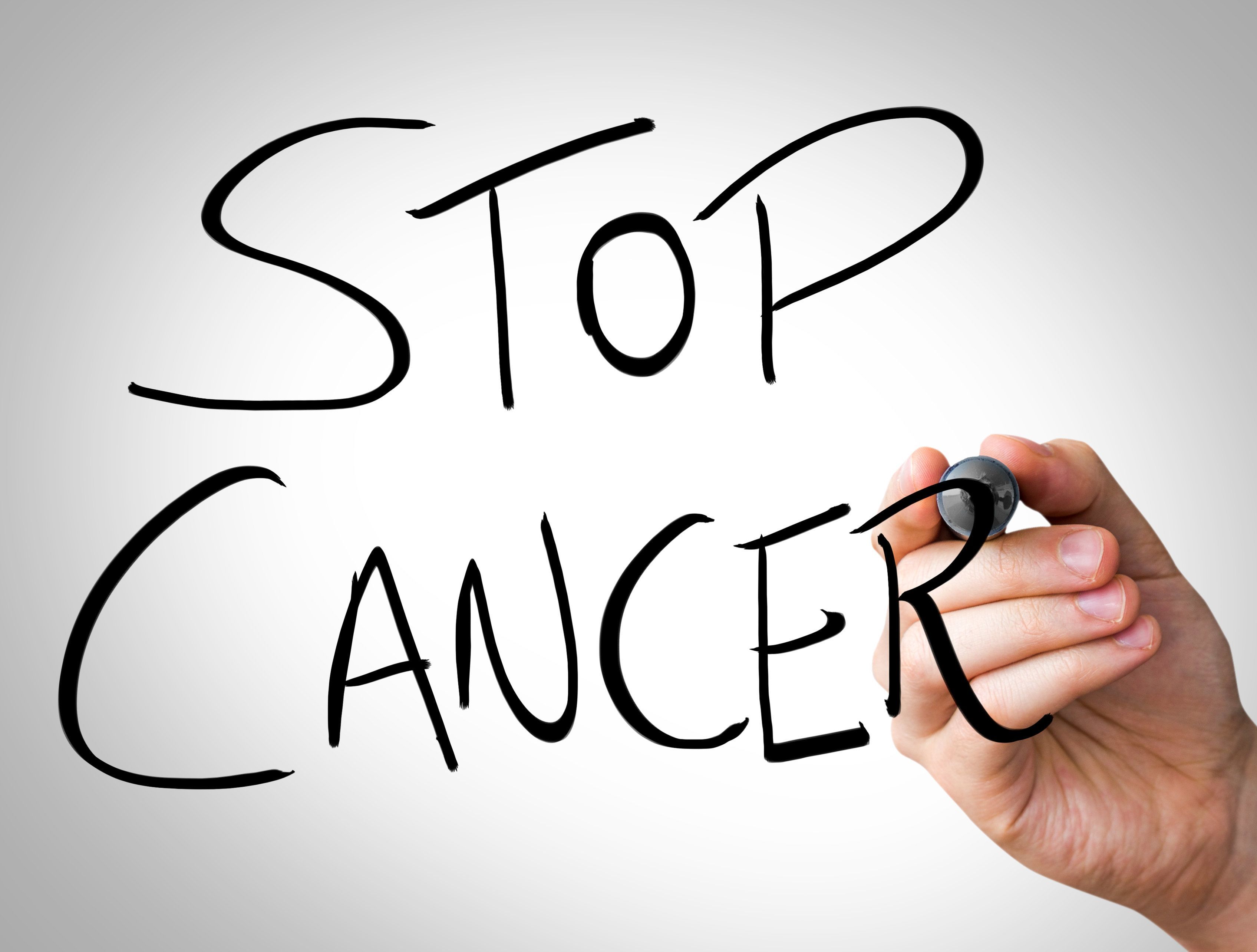
“Everyone has a physician inside him or her; we just have to help it in its work. The natural healing force within each one of us is the greatest force in getting well. Our food should be our medicine. Our medicine should be our food. But to eat when you are sick is to feed your sickness.” –Hippocrates
What is cancer?
DNA molecula carries information about each kind of cell, how it should work, which functions it has to perform. And so it happens that this information is erased from the cell, now it only knows how to maintain its life and multiply, such damaged cell performs any vital functions. It has become now a cancer cell. So cancer itself is a program, which reprograms human`s cells.
Cancer cell is not a weak cell it is very strong, powerful parasite (sponger). For example if our liver has one cancer cell in it – it makes no difference, but if 90 % of liver cells are cancerous, so the liver becomes sponger against her will, it perfoms no vital functions.
We can influence on cancer cell using two methods:
- Try to kill a young cancer cell, but it is very difficult and the cost of it is very high – healthy cells which are near would die first. For example, when using chemo to treat breast cancer, first healthy cells die and only then cancerous.
- Try to boost the immune system. The most dangerous for the cancer cell is a strong immunity.
Still traditional methods of fighting with cancer include 2-3 chemo therapies, after which the patient suffers from anemia, liver disfunction and intoxication. After undergoing any radioactive or chemical treatment patients should be properly fed with all nutrients needed, including strong antioxidants and natural antibiotics.
So, a healthy cell can be reprogrammed by “cosmic invadors” be it virus, bacteria, trichomonada, papilloma virus etc. so that its vital program will be erased and new one will be adobted.
All cancerous cells have positive charge, normal cell has negative charge. Cancerous cell stick to the normal cell, blocks its membrane, and healthy cell dies immediately. And if we drink negatively charged water we reconstruct the cells’ membrane. If we use antioxidants such as Zinc, Selenium, vitamin C we renew the cell.
The reasons of cancer
It is very difficult for a lymph node to cope with cancer cells. It lacks immunity to fight with them.When lymph nodes of first order are affected, it is first stage cancer, if the remote ones, then it is a cancer of 3 or 4 stage process.
The reasons of cancer are the same as in sinusitis, hemorrhoids and other diseases:
- Ecology/ consuming or using toxic substances in daily life
- Psychology
- Lack of immunity
- Improper diet
How does Vitamin C works in our body
It makes the blood cell membrane, the outer membrane, super strong. So therefore, it repels those invaders that come into the body.
So when the Vitamin C rebuilds and repairs that membrane and keeps it strong, then your body doesn’t have to worry about any invaders coming in that it can’t handle, because it’s like the invaders bounce off of the red blood cells.
Linus Pauling, who won a Nobel Peace Prize for his work, found out that Vitamin C works. But you need mega doses of it, just like we said. It’s not just 1,000 milligrams or 2,000. Sometimes it’s 10,000 milligrams or more through a drip IV. It can take a tremendous amount. If your body is already weakened, and those blood cells are already compromised, they don’t have the ability to repel the cancer cells, which is why you need mega doses of that particular vitamin, along with a few other things. But Vitamin C is one of the most important ones.
2 “Instead of using medicine, rather fast a day.” – Plutarch
For thousands upon thousands of years (during most of which overweight, let alone obese, people were fairly rare), therapeutic fasting was a common protocol for the healing of many maladies. From famous sages like Plato, Aristotle, and the afore mentioned Hippocrates and Plutarch to cancer patients unable to eat during chemotherapy to pet dogs and cats who suddenly lose once-voracious appetites upon falling ill, it seems like the natural response to – and perhaps therapy for – major illness is to stop eating for a while.
Modern science has deigned research into the phenomenon, particularly regarding cancer, worth pursuing. According to Valter Longo, a cancer researcher from USC, “normal cells” go into survival mode during starvation. They display “extreme resistance to stresses” until the “lean period” ends, much like an animal in hibernation mode. Cancer cells, on the other hand, are always “on.” Their “goal” is to grow and reproduce and consume resources. For cancer cells, there is no novel survival mode to switch on. If this is the case, fasting should both improve our resistance to cancer and our body’s ability to survive it (and the treatments used against it, like chemotherapy).
Though human trials are scant (you can’t exactly inject people with cancer cells and then try out different therapeutic protocols, the animal research is intriguing.
Animal Trial
In one of the earliest studies, forty-eight rats were split up into two groups of twenty-four. One group ate ad libitum for a week, while the other group underwent alternate day fasting. After one week of the various dietary protocols, both groups were injected with breast cancer. At nine days post-injection, 16 of 24 fasted rats remained alive, while just five of 24 ad-libitum fed rats lived. At ten days post-injection, only three of the 24 ad libitum-fed rats survived; 12 of the 24 fasted rats remained alive. Pretty large disparity, isn`t it?
That was in 1988. It wasn’t until the late 90s that more promising research was undertaken. That’s when Longo began studying in earnest the phenomenon of increased cellular resistance to oxidative stress during fasting. Figuring that since chemotherapy exerts its effects on cancer by inducing oxidative stress (to all cells, not just cancerous ones), and fasting triggers survival mode in normal cells but not cancer cells, he conducted a study on mice to determine whether fasting protected the healthy, normal cells from chemotherapy’s side effects while leaving the cancer cells sensitive to the treatment. Tumor-ridden mice were either fasted or fed normally 48 hours prior to a large dose of chemotherapy. Half of the normally-fed mice died from chemotherapy toxicity, while all of the fasted mice survived. Furthermore, fasting did not improve the survival rate of cancerous cells, meaning it only protected normal, healthy cells.
Research has continued. Longo found that “starvation-dependent stress” protects normal cells, but not cancer cells, against the effects of chemotherapy. Even a “modified” alternate day fasting regimen, in which mice were given 15% of their normal calories on “fasting” days, reduced proliferation rates of tumor cells. This “85%” fasting regimen was even more effective than the full 100%. And most recently, Longo et al found that fasting both retarded the growth of tumors while sensitizing cancer cells to the effects of chemotherapy – across a wide range of tumor types. Most importantly, they concluded that fasting could “potentially replace or augment” certain existing chemotherapy regimens!
Human Trial(s)
There has been just one of which I’m aware: a 2009 case study that delivered promising results. Ten cancer patients – four with breast cancer, two with prostate cancer, one each with ovarian, lung, uterine, and esophageal cancers – underwent fasting prior to and after chemotherapy treatment. Fasting times ranged from 48-140 hours prior to and 5-56 hours after; all were affective at reducing side effects of chemotherapy.
In the first case, a 51-year old woman with breast cancer did her first round of chemotherapy in a fasted state of 140 hours. Other than dry mouth, fatigue, and hiccups, she felt well enough to go to work and resume her normal daily activities. For the subsequent two rounds, she did not fast and instead ate her normal diet, and the side effects were extremely pronounced – severe fatigue, diarrhea, weakness, abdominal pain, nausea – and prevented her from returning to work. For her fourth round of chemotherapy, she fasted, and the side effects were again minimized. And it wasn’t just the subjective effects that improved with fasting, but also her physiological markers. Total white blood cell, absolute neutrophil counts, and platelet counts were all highest after the fasting regimens.
Other Possible Protective Mechanisms of Prevention
Improved insulin sensitivity. Intermittent fasting improves insulin sensitivity and reduces insulin resistance. Insulin resistance has been linked to several cancers, including prostate, breast, and pancreatic. Metabolic syndrome, which fasting seems to help prevent and reduce, is linked to cancer in general.
Autophagy. While autophagy – the process by which cells “clean up” cellular “garbage” – has acomplex relationship with cancer, it’s generally a positive process that protects cells from excessiveoxidative stress. Fasting has been shown to induce “profound” neuronal autophagy, as well as general autophagy.
Fasting versus caloric restriction. It’s true that caloric restriction appears to offer anti-cancer benefits, but there are a couple ways in which fasting might be superior:
- Fasting (acute bouts of caloric restriction) is easier than CR (chronic caloric restriction) for most people. Fasting for some people is just an easier, more natural, more effortless way to reduce your calorie intake. That can pay huge dividends when it comes to weight loss, and it appears likely that it will help with cancer, too. If fasting is easier than constantly counting your calories, fasting is going to work better.
- Fasting is more effective in a shorter amount of time. Whereas studies on caloric restriction and cancer employ weeks- and months-long CR regimens, studies on fasting and cancer employ hours- and days-long fasting regimens. In most cases, fasting just seems to require far less time to be effective.
It’s an exciting time for fasting and cancer research. While it’s still viewed in most circles as an “alternative” modality, fasting is now being seriously considered as a possible treatment (both adjunct and even primary) for various cancers, including breast and prostate. I can’t wait to see what comes out in the coming years.
Of course, my own feeling is that fasting is both easier and more effective if you have made the transition to a Primal Blueprint way of eating. In other words, when you have up-regulated those fat-burning systems and down-regulated the reliance on glucose, many of the other issues that can make fasting less appealing to “sugar-burners” tend to go away: cortisol levels out, muscle protein is spared, hunger subsides naturally and energy is steady.
What does this mean for you – the person who either has cancer and wants to get rid of it or who doesn’t have cancer and wants to stay that way? Researchers like Valter Longo can’t officially recommend it to cancer patients, but it seems well-tolerated and basically safe. If you or anyone you know has cancer, suggest fasting as a possible strategy. As long as a person keeps their oncologist apprised of the situation and any relevant research on the subject, it might prove helpful. And if you’re currently cancer-free, consider implementing occasional (intermittent) fasts, just to be safe.
In our next articles we will speak about: What you shouldn`t consume & what is a must to eat every day.


























